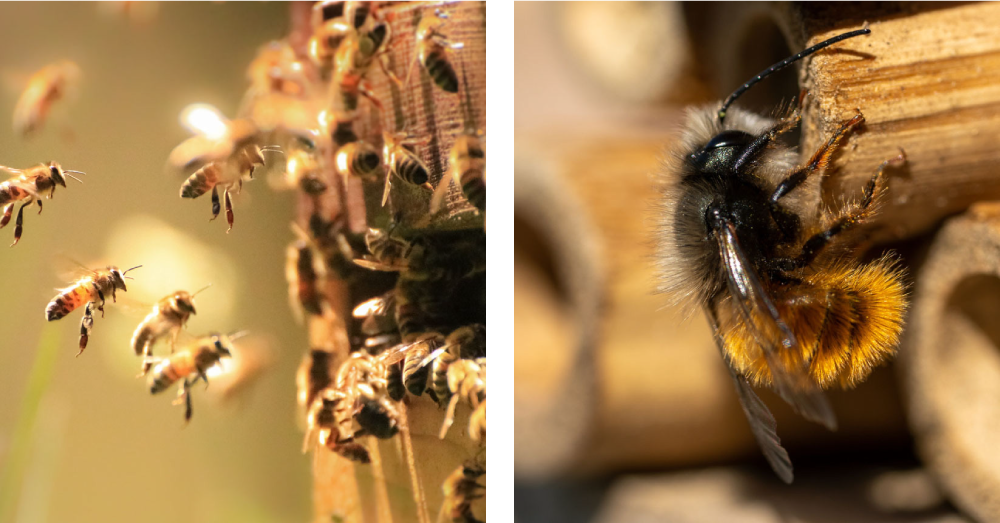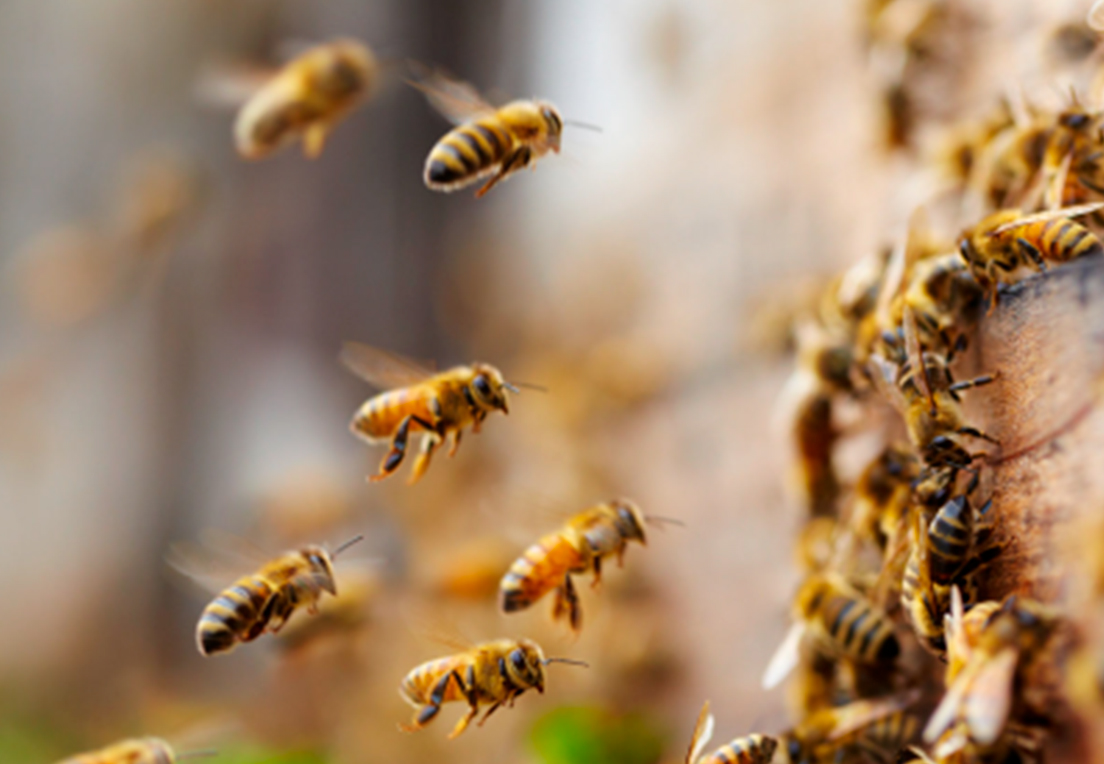BEES
2023The lockdown has been hash on all of us however, it has its good sides too. Experts reported that this year bee populations are buzzing through the fields, forests and gardens in particularly large numbers.
These bees are essential to our ecosystem and to us humans.
They are also incredibly multi-skilled, they pollinate our flora, supporting approximately 1/6 of flowering species worldwide. Not only do bees build beautiful environments for us to enjoy, but they preserve and nurture floral growth, creating attractive habitats for insects and birds. They pollinate our food and the honeybee is the world’s top pollinator of crops.
IIf it weren’t for bees, we wouldn’t have asparagus, almonds, apples and all kinds of fruits and veg including blackberries, blueberries, strawberries, broccoli, nuts, beans, cucumbers, onions, grapes, cherries and even coffee , the list goes on.

They are also vital in pollinating our food’s food, like clover and alfalfa, fed to cattle, with implications for our meat and dairy. They produce honey and honeycomb, including important anti-bacterial properties used in alternative medicinal products.

and honey is the only food that includes all the substances necessary to sustain life!
Organic farms provide forage as food for bees and generally employ less intensive agricultural methods to prevent the pollinators from being ‘overworked’. Just two hives can pollinate an entire mid-sized garden for thriving plants!
Keeping bees can support local agriculture, food, jobs and the production of honey products, all very helpful for the economy.
HOW CAN WE HELP OUR BEES?
If you can do without using chemicals on your balcony plants and in your gardens, you are already helping the bees a lot.
It would be even better to allow them a corner in your garden – a little patch where mowing is not done and where wild flowers can thrive. Stacks of wood or even a “bee hotel” with drilled holes are also popular nesting sites.
Early flowering plants are especially important for feeding wild bees and bumblebees. This is because the insects fly out already in the last days of winter and start looking for food.
Did you ever imagine bees to be so amazing?
I believe we have a lot to thank them for and now we have a huge responsibility to protect them!
Please let us be mindful of the importance of supporting our bees.





